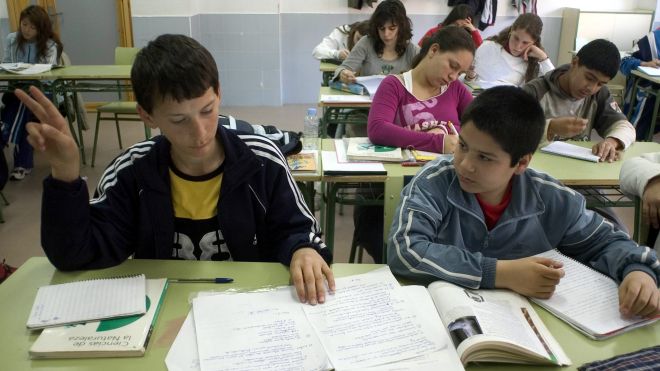This op-ed originally appeared in Fox News Latino.
“Our progress as a nation can be no swifter than our progress in education,” President Kennedy, J.F. (1961).
If John F. Kennedy were alive today, he would have looked at the state of the Hispanic community and concluded that it was time to put more focus on education.
The numbers are disturbing: 27 percent of the 48.2 million people in poverty in the United States are of Hispanic origin. A Latino man is four times more likely to be incarcerated in a prison some time in his life than the rest of society. The poverty rate for Latinos was 24 percent in 2014. And the income of Latinos in 2014 was $42,396 per family compared to $53,482 for the general population.
These figures are alarming. My situation was not unlike many young Latinos of my time. The needs of our poor family – working on farms and agricultural fields – made me miss many days of school. This, and the indifference of the administrators, forced me to abandon my studies after the tenth grade, before obtaining a diploma. At the age of 17, I was a high school dropout.
My decision (the same as more than 10 percent of Latinos take each year) would have probably made me one of those statistics. Fortunately, I had an uncle who lent me a hand, encouraged me to take the GED® exam, and even offered to pay.
This radically changed the course of my life. I went to college, worked in law enforcement, was elected to the City Council of my city, worked for my local congressman, and eventually served in the George W. Bush administration at the White House.
Certainly, this transformation would have been impossible if I had not achieved the equivalent of a secondary education. I could see through my experience that the United States remained a country where anyone – regardless of where they come from – can achieve what they want.
And if we want to change the realities that face our children and youth, we need to drive a change that strengthens the well-being and preparation of people. The interests and priorities of government bureaucrats and union machines seek — should make way for the good of the community.
Effective reforms should include measures to ensure opportunity for Latinos – as well as all other communities – to choose the educational institution that best suits their needs. States should take the lead in determining which institutions they accredit and certify courses for academic study. And policymakers must open the education market to encourage innovation and better outcomes for students.
Unfortunately these reforms have not arrived and today many are in the same situation I was at 17 years old. Currently, 31 percent of all Hispanics 18 and older lack a high school diploma or an equivalent credential.
This is a major obstacle to opportunity and a path to becoming one more number in the statistics mentioned above. That is why my organization, The LIBRE Institute, partnered with Essential Education to provide adults a free nationally accredited curriculum and a voucher to cover the cost of the GED® exam. Our goal is to increase Latino access to higher education and the economic opportunities that come with it.
But, like the adults who have enrolled in the program, as a community we need to go the extra mile and take every opportunity to be self-sufficient. Our sister organization, The LIBRE Initiative, has been dedicated to providing workshops for English language learners — with over 3,000 people on our waiting list. They are partnering with economists from O’Neill Center-Southern Methodist University in Texas to instruct hundreds of public school teachers (with a significant percentage of Latino students) on free market principles. And their field team has provided thousands of adults throughout the country classes to pass their learner’s permit or citizenship test.
History has shown us that federal programs have never yielded the promised results regarding social inadequacies. But we must not sit with folded arms. To excel as a community we need to advance education programs that build the individual.
The task is huge. Thousands of volunteers have joined our efforts and our voice to advance measures that will help our children to have the desired success and provide instructional resources to their compatriots.
